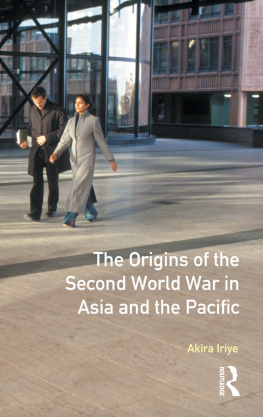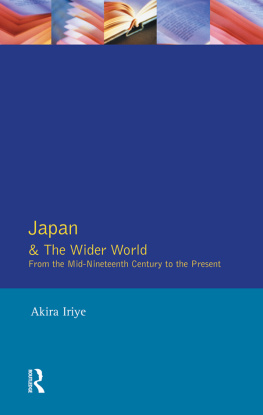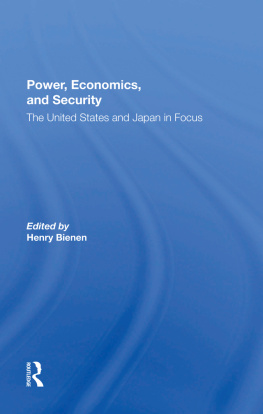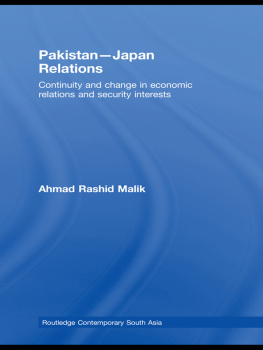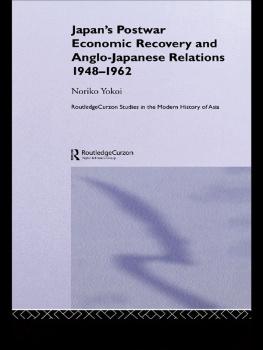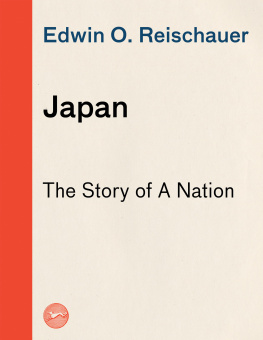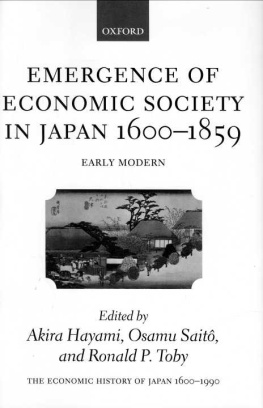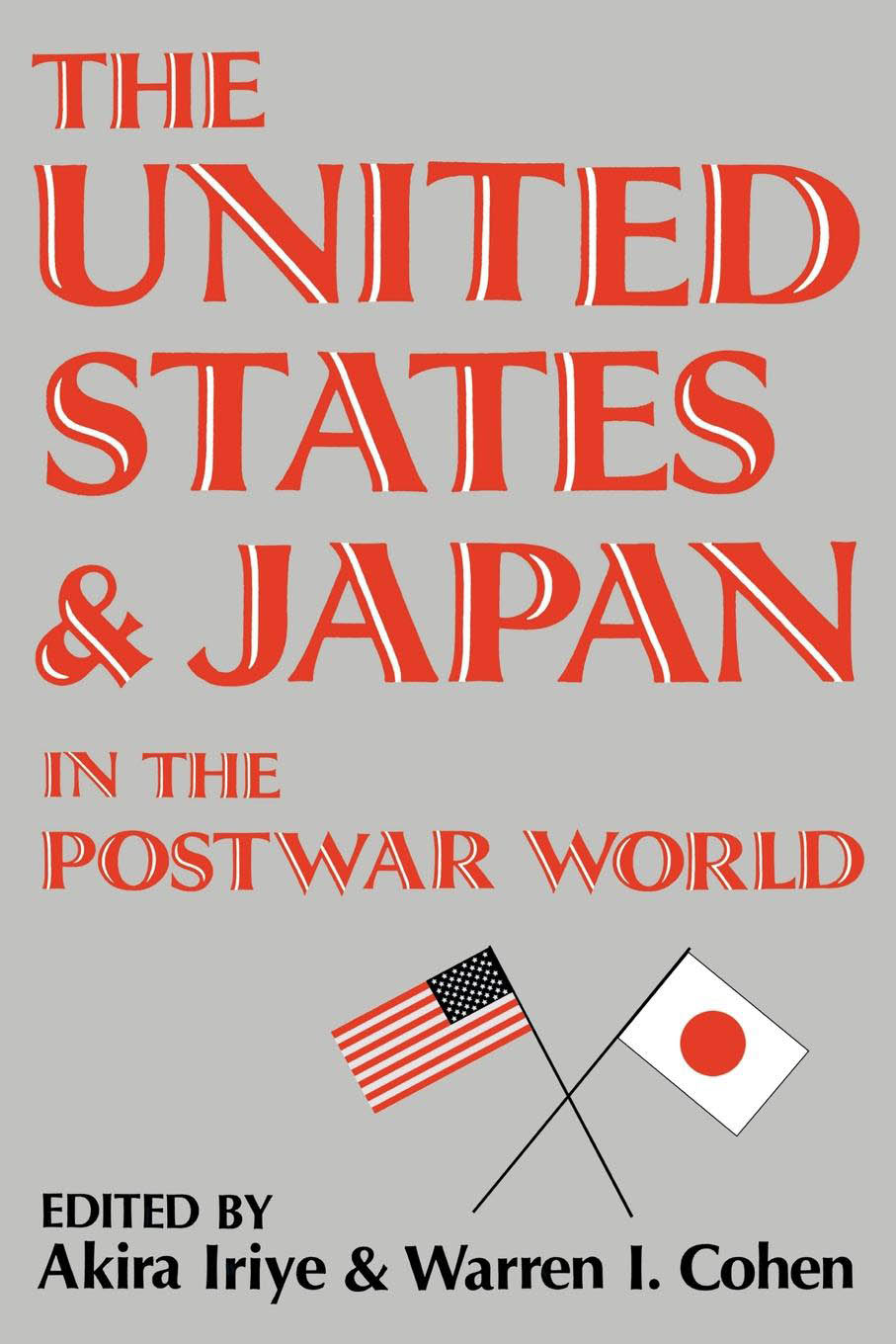The United States and Japan
in the Postwar World
The United States and Japan
IN THE POSTWAR WORLD
Edited by Akira Iriye and Warren I. Cohen

This book is based upon papers presented at a conference sponsored by both the Japan Society for the Promotion of Science and the Joint Comittee on Japanese Studies of the Social Science Research Council and the American Council of Learned Societies.
Copyright 1989 by The University Press of Kentucky
Scholarly publisher for the Commonwealth,
serving Bellarmine College, Berea College, Centre
College of Kentucky, Eastern Kentucky University,
The Filson Club, Georgetown College, Kentucky
Historical Society, Kentucky State University,
Morehead State University, Murray State University,
Northern Kentucky University, Transylvania University,
University of Kentucky, University of Louisville,
and Western Kentucky University.
Editorial and Sales Offices: Lexington, Kentucky 40506-0336
Library of Congress Cataloging-in-Publication Data
The United States and Japan in the postwar world / edited by Akira
Iriye and Warren I. Cohen.
p. cm.
Based upon papers presented at a [1984] conference sponsored by both the Japan Society for the Promotion of Science and the Joint Committee on Japanese Studies of the Social Science Research Council and the American Council of Learned SocietiesP. iv.
Includes index.
ISBN 0-8131-1652-X (alk. paper)
1. United StatesForeign relationsJapanCongresses. 2. JapanForeign relationsUnited StatesCongresses. 3. United StatesForeign economic relationsJapanCongresses. 4. JapanForeign economic relationsUnited StatesCongresses. I. Iriye, Akira.
II. Cohen, Warren I.
E183.8.J3U723 1989 88-38372
327.73052dc19
Contents
Robert G. Gilpin
Chihiro Hosoya
Warren I. Cohen
Tadashi Aruga
Akio Watanabe
Walter LaFeber
Stephen Krasner and Daniel Okimoto
Hideo Kanemitsu
Robert Alan Feldman
Akira Iriye
Nagayo Homma
Mitsuru Yamamoto
Tables
Preface
In 1984 a group of distinguished American and Japanese scholars met under the auspices of the Social Science Research Councilwith the support of the Ford Foundation, National Endowment for the Humanities, and the Japan-United States Friendship Commissionto examine relations between their countries in a historical and global context. They recognized that the constantly growing issues between the two countries, which were becoming so complex that many across the Pacific were warning of a drifting apart, if not a rupture, of two of the closest allies since the war, could only be understood if examined historicallyin relation to the overall themes and trends in the past several decadesand globallyin the context of changing world and regional affairs.
Such an effort is, if anything, needed even more today when one hears talk of a serious conflict, crisis of confidence, or misunderstanding between the United States and Japan that threatens to erode the Pacific alliance. The editors, therefore, have assembled some of the papers presented at the 1984 gathering to make them available to concerned citizens as well as to the specialists.
The editors would like to express special thanks to the Social Science Research Council for its support of the initial gathering and to the University Press of Kentucky for its willingness to publish the essays in book form. The editing of the papers has been facilitated by the cheerful and efficient help of graduate assistants at the University of Chicago and Michigan State University, in particular Alexa Hand and Barbara Welke.
Abbreviations
ANZUS | Pacific Security Treaty [Australia, New Zealand, United States] |
ASEAN | Association of Southeast Asian Nations |
ASPAC | Asian and Pacific Council |
CHINCOM | China Committee |
COCOM | Coordinating Committee for Export to Communist Areas |
DSP | Democratic Socialist party (Japan) |
ECA | Economic Cooperation Administration |
ECAFE | Economic Commission for Asia and the Far East |
EEC | European Economic Community |
ESB | Economic Stabilization Board |
FIDA | Foreign Investor Deposit Account |
FYA | Free Yen Account |
FEC | Far Eastern Commission |
GATT | General Agreement on Tariffs and Trade |
GDP | Gross Domestic Product |
GNP | Gross National Product |
IMF | International Monetary Fund |
JCP | Communist party (Japan) |
JSP | Socialist party (Japan) |
LDP | Liberal Democratic party (Japan) |
MITI | Ministry of International Trade and Industry |
NATO | North Atlantic Treaty Organization |
NDA | Nonresident Deposit Account |
NIC | newly industrialized countries |
NSC | National Security Council |
NYDA | Nonresident Yen Deposit Account |
OECD | Organization for Economic Co-operation and Development |
OIR | Office of Intelligence Research (U.S. Department of State) |
OMA | orderly market agreement |
OPEC | Organization of Petroleum Exporting Countries |
PRC | Peoples Republic of China |
ROC | Republic of China |
SEATO | Southeast Asia Treaty Organization |
SITC | Standard International Trade Classifications |
Shy | General Council of Trade Unions (Japan) |
VER | voluntary export restraint |
The United States and Japan
in the Postwar World
PART ONE
U.S.-Japanese Relations since 1945
As the basic framework of international affairs since the end of World War II, Robert Gilpin proposes the concept of the American System. According to this analysis, the postwar world was characterized by Americas military, political, and economic predominance, and it continued to define the international system until the 1980s. Western European countries and Japan basically accepted this definition and generally fitted themselves into it. The American System, however, had two componentsthe U.S.-European and the U.S.-Japanese axes, each buttressed by security alliances and close economic tiesbut these two were not always well coordinated, The third possible axis, the European-Japanese connection, was very tenuous.


